2016
Installation
26 pc, 60 x 80 x 180 cm each
No Man is an Iland – A Spatial Essay on Literary Islands consisted of 26 plywood signs with printed quotations from fiction set on islands, installed on nature trail around an actual one locating in front of Gösta Serlachius Museum in Mänttä, Finland. Constituted thematically along the trail, the signs formed a spatial essay on literary islands – a locus recurring from Ancient Greece to postmodern literature. As the viewer walked along the trail, the quotations evolved from descriptions of a physical island into more metaphysical imagery, concluding with quotation from poem Meditation XVII by John Donne (1572-1631):
“No man is an Iland, intire of it selfe; every man is a peece of the Continent, a part of the maine; if a Clod bee washed away by the Sea, Europe is the lesse, as well as if a Promontorie were, as well as if a Mannor of thy friends or of thine owne were; any mans death diminishes me, because I am involved in Mankinde; And therefore never send to know for whom the bell tolls; It tolls for thee.” (John Donne: Devotions upon Emergent Occasions, 1624)
Photography: Timo Bredenberg
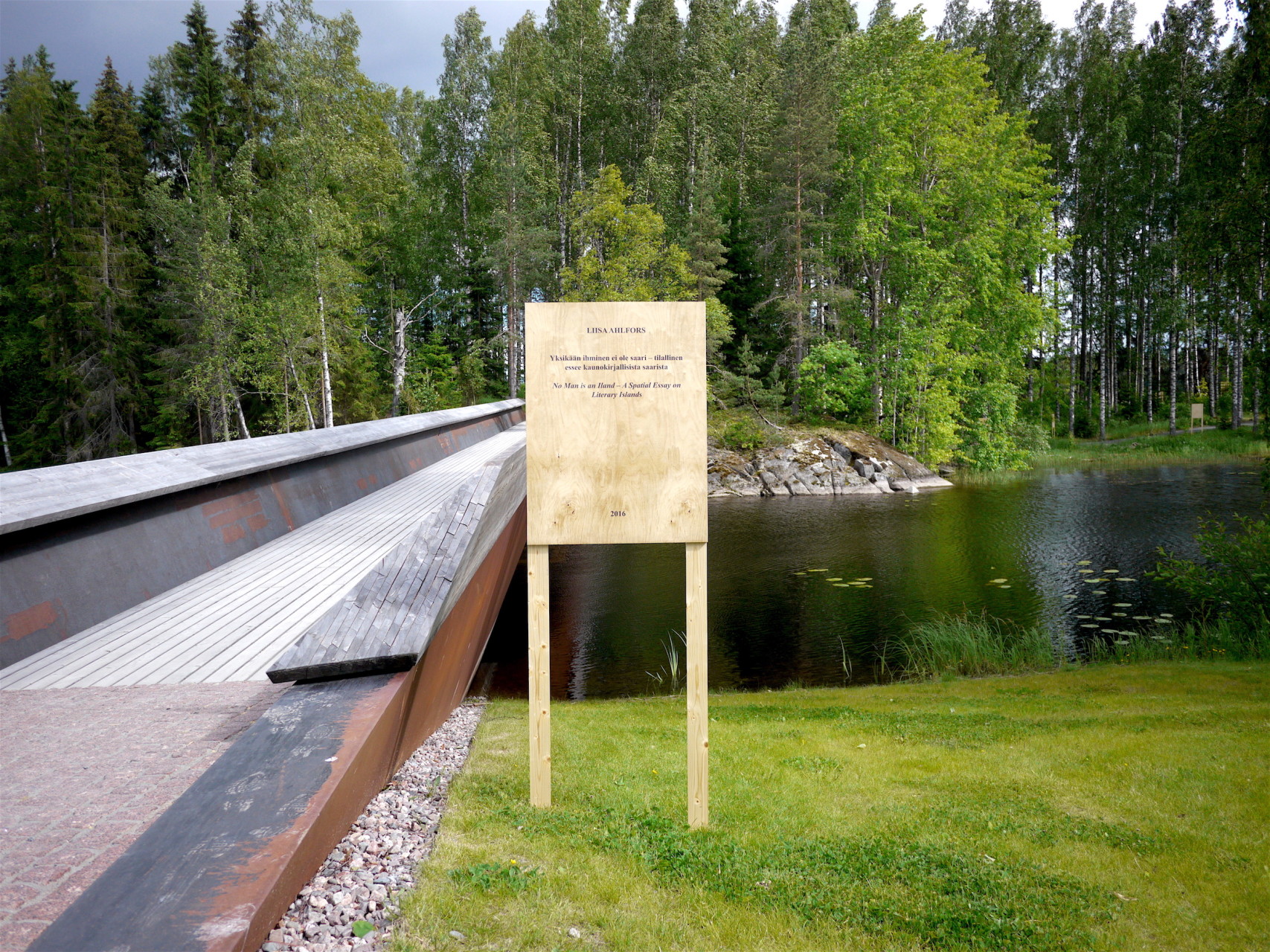 Liisa Ahlfors: No Man is an Iland – A Spatial Essay on Literary Islands, 2016
Liisa Ahlfors: No Man is an Iland – A Spatial Essay on Literary Islands, 2016 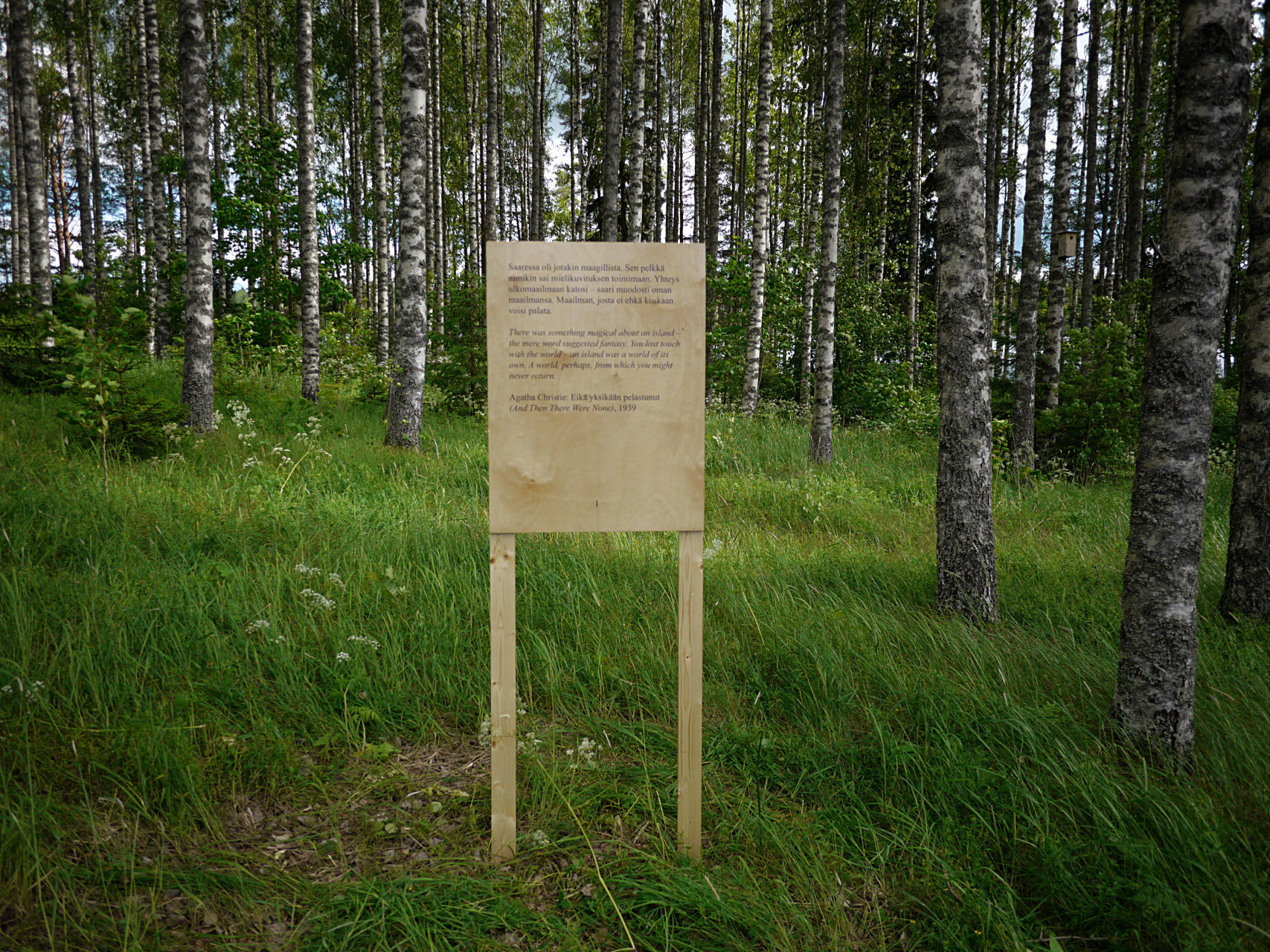 There was something magical about an island – the mere word suggested fantasy. You lost touch with the world – an island was a world of its own. A world, perhaps, from which you might never return. (Agatha Christie: And Then There Were None, 1939)
There was something magical about an island – the mere word suggested fantasy. You lost touch with the world – an island was a world of its own. A world, perhaps, from which you might never return. (Agatha Christie: And Then There Were None, 1939) 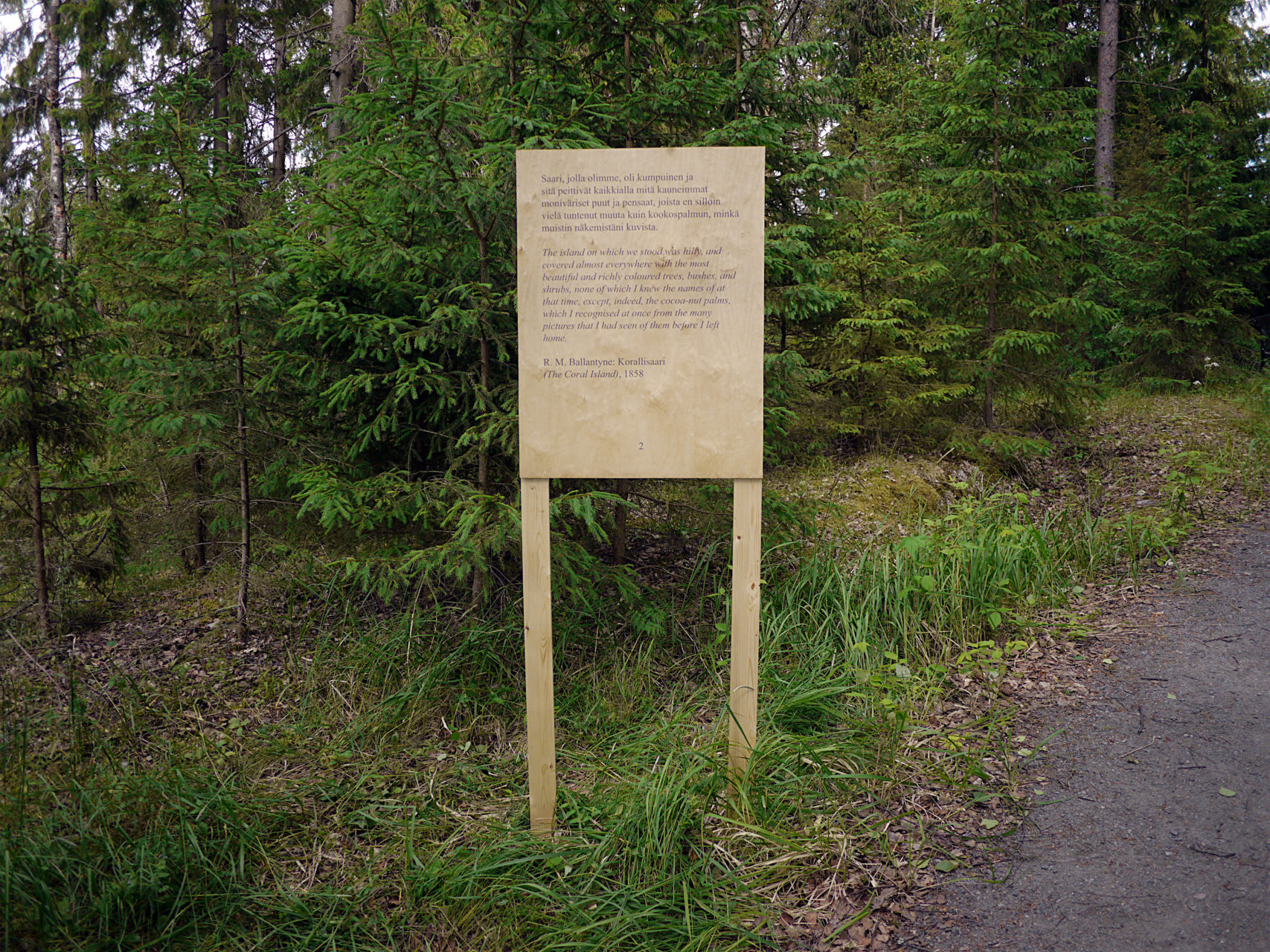 "The island on which we stood was hilly, and covered almost everywhere with the most beautiful and richly coloured trees, bushes, and shrubs, none of which I knew the names of at that time, except, indeed, the cocoa-nut palms, which I recognised at once from the many pictures that I had seen of them before I left home." (R.M. Ballantyne: The Coral Island, 1858)
"The island on which we stood was hilly, and covered almost everywhere with the most beautiful and richly coloured trees, bushes, and shrubs, none of which I knew the names of at that time, except, indeed, the cocoa-nut palms, which I recognised at once from the many pictures that I had seen of them before I left home." (R.M. Ballantyne: The Coral Island, 1858) 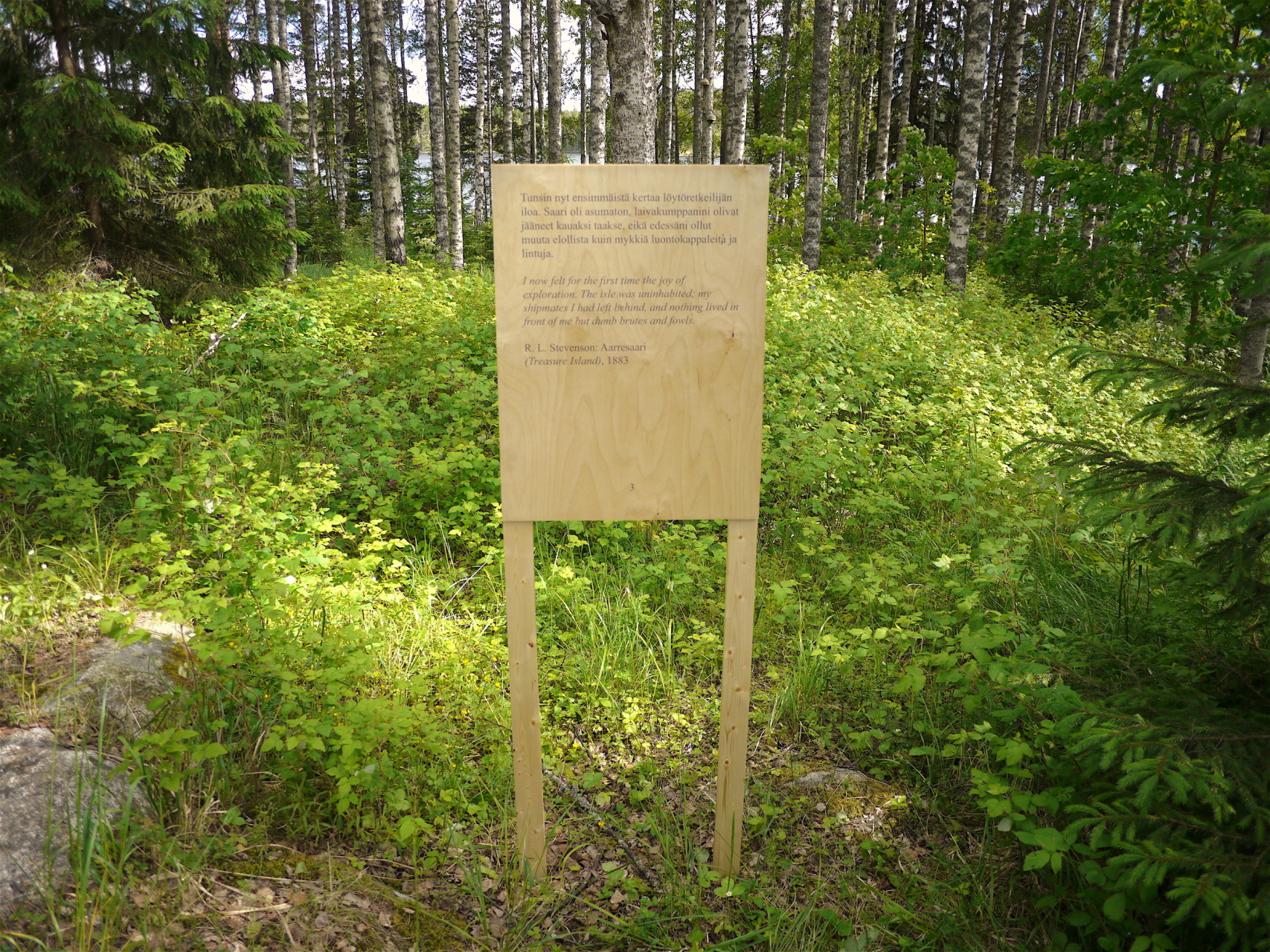 I now felt for the first time the joy of exploration. The isle was uninhabited; my shipmates I had left behind, and nothing lived in front of me but dumb brutes and fowls. (R. L. Stevenson: Treasure Island, 1883)
I now felt for the first time the joy of exploration. The isle was uninhabited; my shipmates I had left behind, and nothing lived in front of me but dumb brutes and fowls. (R. L. Stevenson: Treasure Island, 1883) 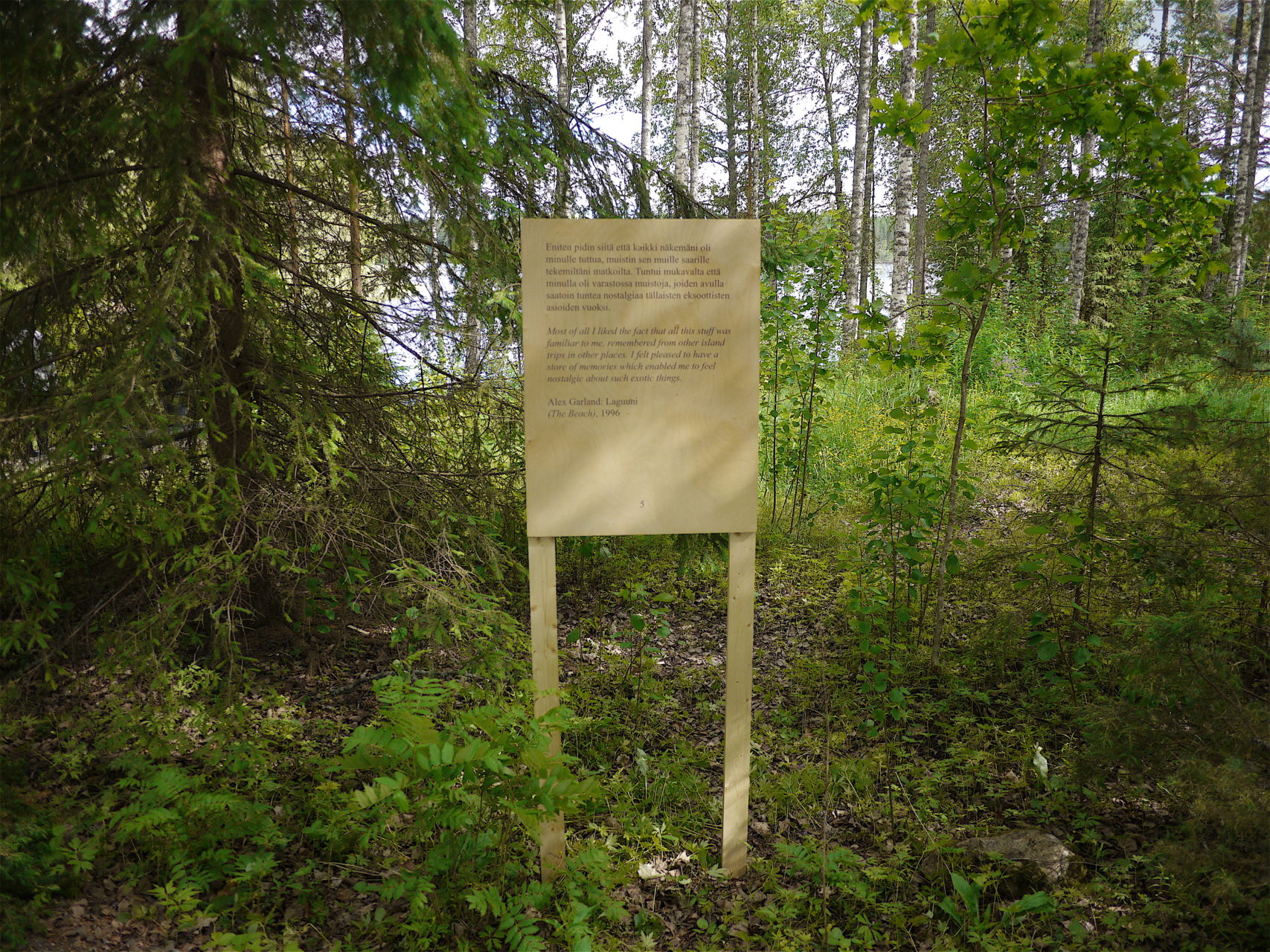 "Most of all I liked the fact that all this stuff was familiar to me, remembered from other island trips in other places. I felt pleased to have a store of memories which enabled me to feel nostalgic about such exotic things." (Alex Garland: The Beach, 1996)
"Most of all I liked the fact that all this stuff was familiar to me, remembered from other island trips in other places. I felt pleased to have a store of memories which enabled me to feel nostalgic about such exotic things." (Alex Garland: The Beach, 1996) 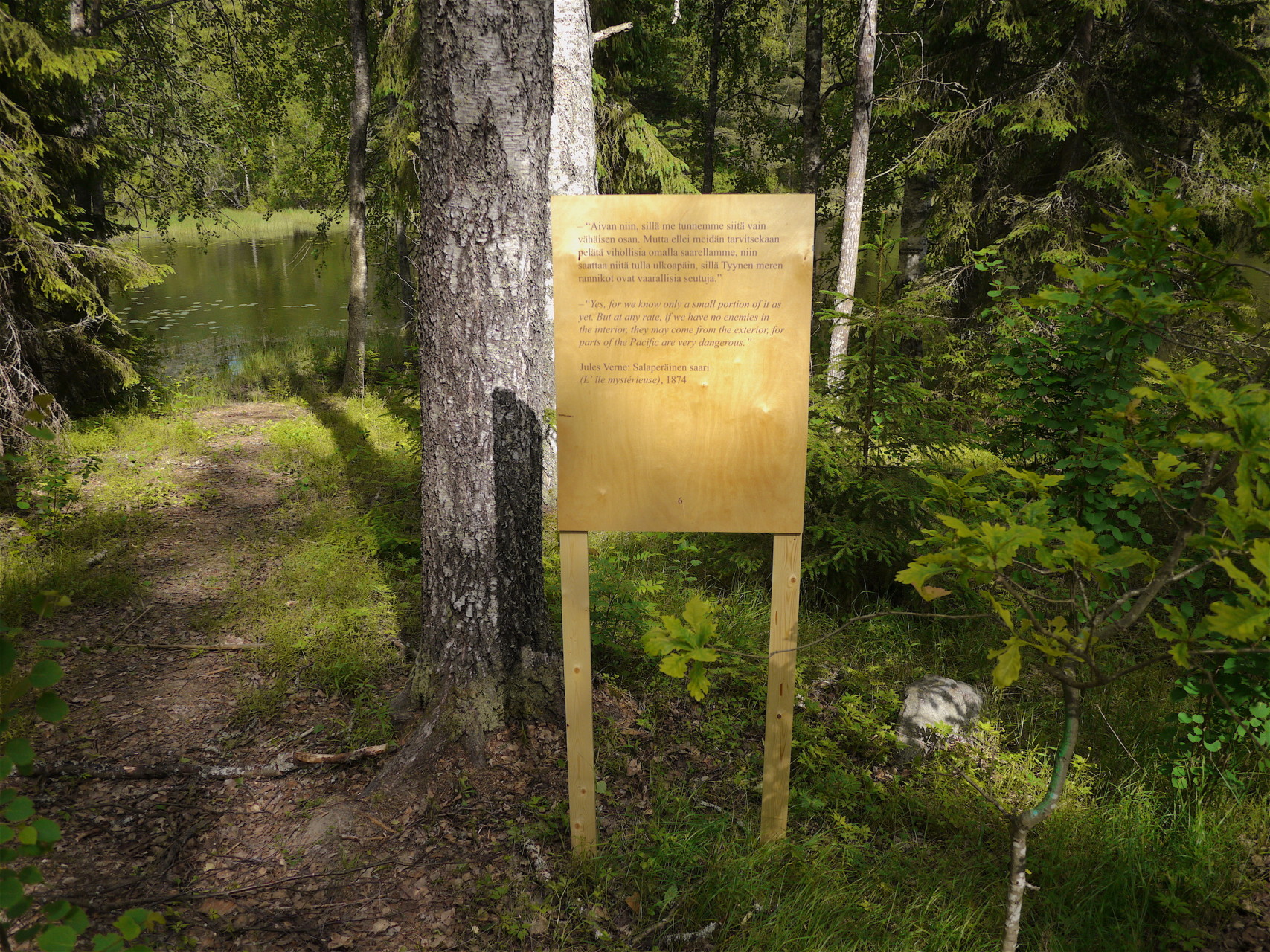 “Yes, for we know only a small portion of it as yet. But at any rate, if we have no enemies in the interior, they may come from the exterior, for parts of the Pacific are very dangerous.” (Jules Verne: L’ île mystérieuse, 1874)
“Yes, for we know only a small portion of it as yet. But at any rate, if we have no enemies in the interior, they may come from the exterior, for parts of the Pacific are very dangerous.” (Jules Verne: L’ île mystérieuse, 1874) 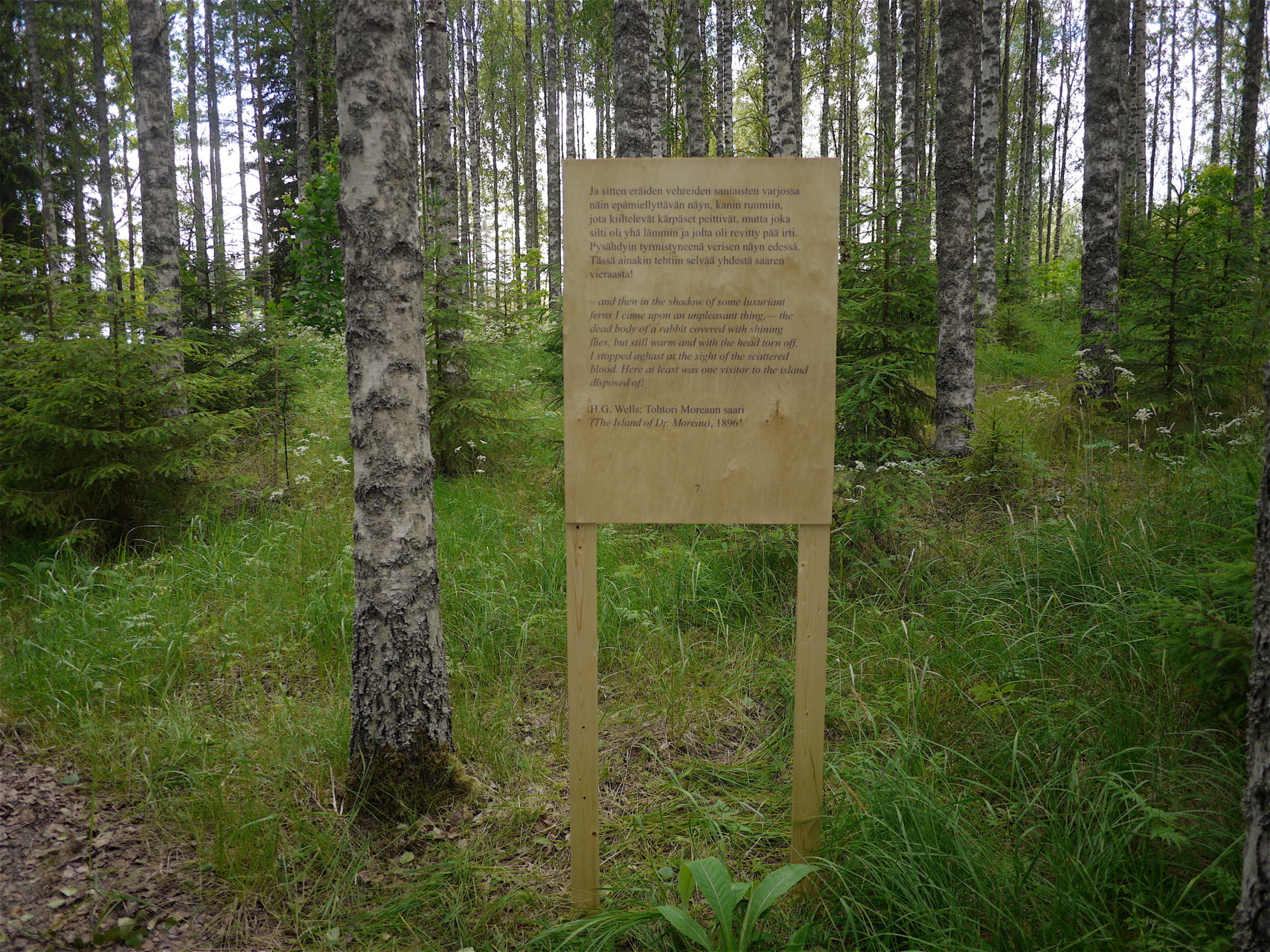 "– and then in the shadow of some luxuriant ferns I came upon an unpleasant thing,— the dead body of a rabbit covered with shining flies, but still warm and with the head torn off. I stopped aghast at the sight of the scattered blood. Here at least was one visitor to the island disposed of!" (H.G. Wells: The Island of Dr. Moreau), 1896
"– and then in the shadow of some luxuriant ferns I came upon an unpleasant thing,— the dead body of a rabbit covered with shining flies, but still warm and with the head torn off. I stopped aghast at the sight of the scattered blood. Here at least was one visitor to the island disposed of!" (H.G. Wells: The Island of Dr. Moreau), 1896 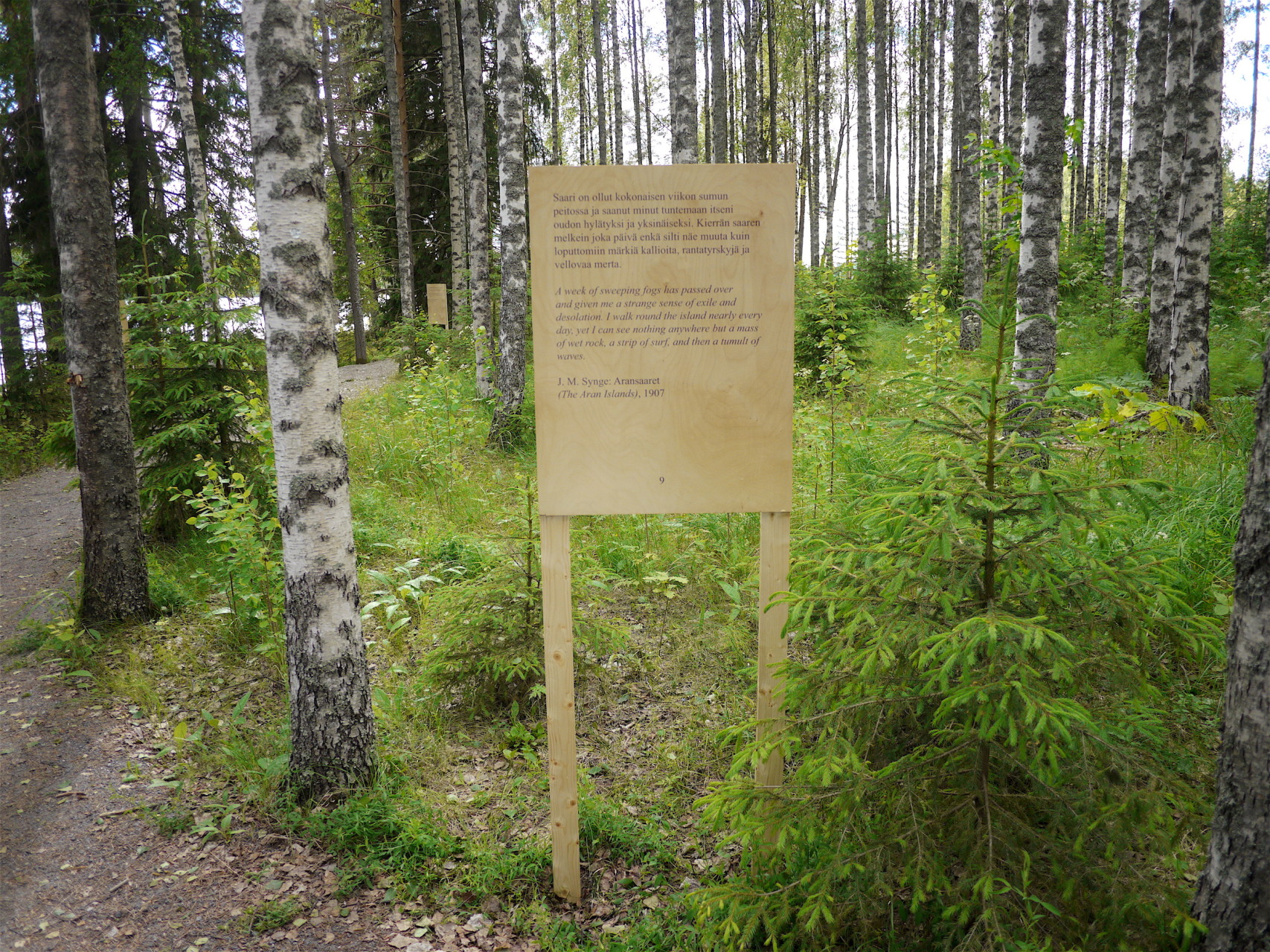 A week of sweeping fogs has passed over and given me a strange sense of exile and desolation. I walk round the island nearly every day, yet I can see nothing anywhere but a mass of wet rock, a strip of surf, and then a tumult of waves. (J. M. Synge: The Aran Islands, 1907)
A week of sweeping fogs has passed over and given me a strange sense of exile and desolation. I walk round the island nearly every day, yet I can see nothing anywhere but a mass of wet rock, a strip of surf, and then a tumult of waves. (J. M. Synge: The Aran Islands, 1907) 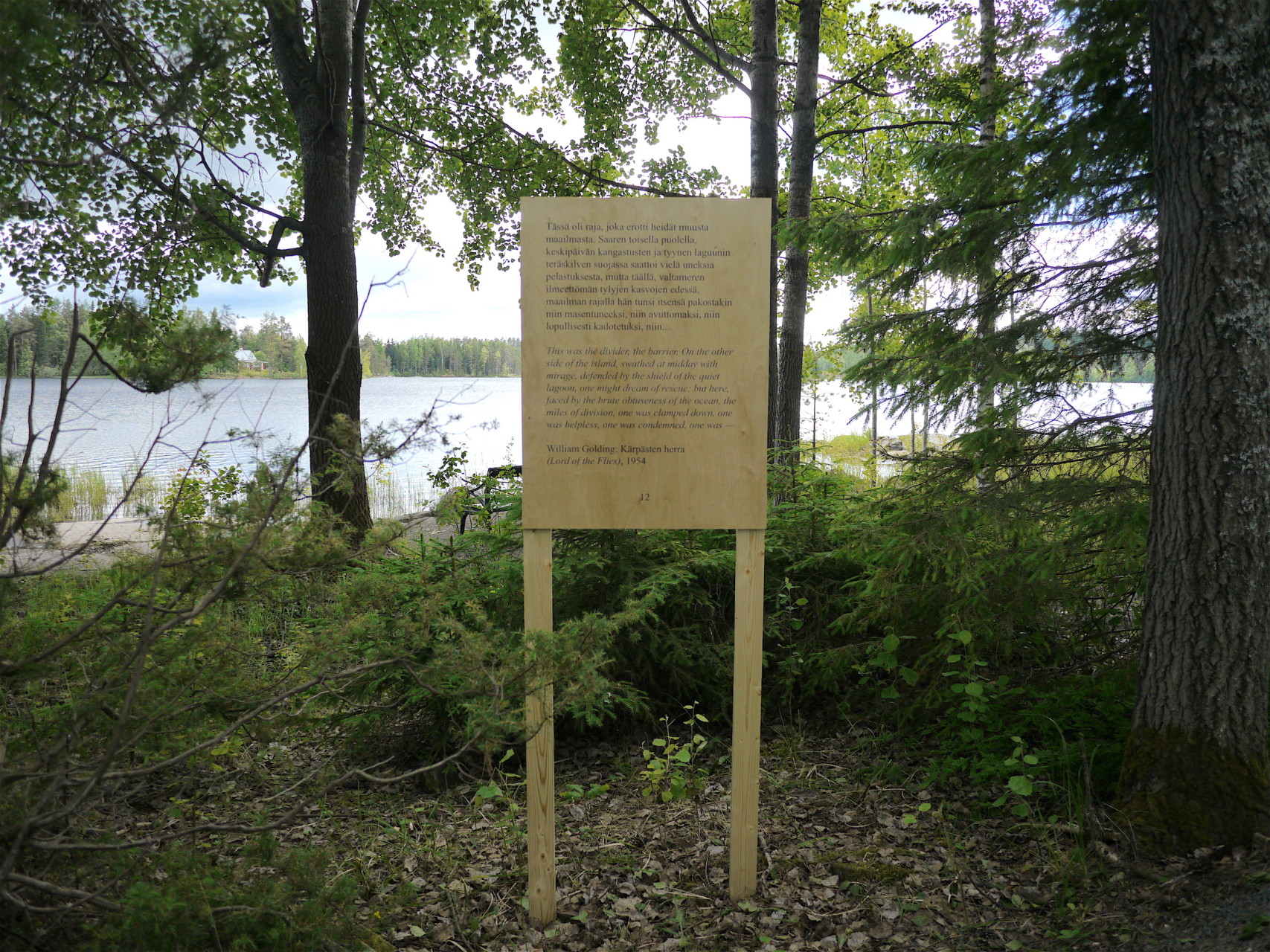 This was the divider, the barrier. On the other side of the island, swathed at midday with mirage, defended by the shield of the quiet lagoon, one might dream of rescue; but here, faced by the brute obtuseness of the ocean, the miles of division, one was clamped down, one was helpless, one was condemned, one was — (William Golding: Lord of the Flies, 1954)
This was the divider, the barrier. On the other side of the island, swathed at midday with mirage, defended by the shield of the quiet lagoon, one might dream of rescue; but here, faced by the brute obtuseness of the ocean, the miles of division, one was clamped down, one was helpless, one was condemned, one was — (William Golding: Lord of the Flies, 1954) 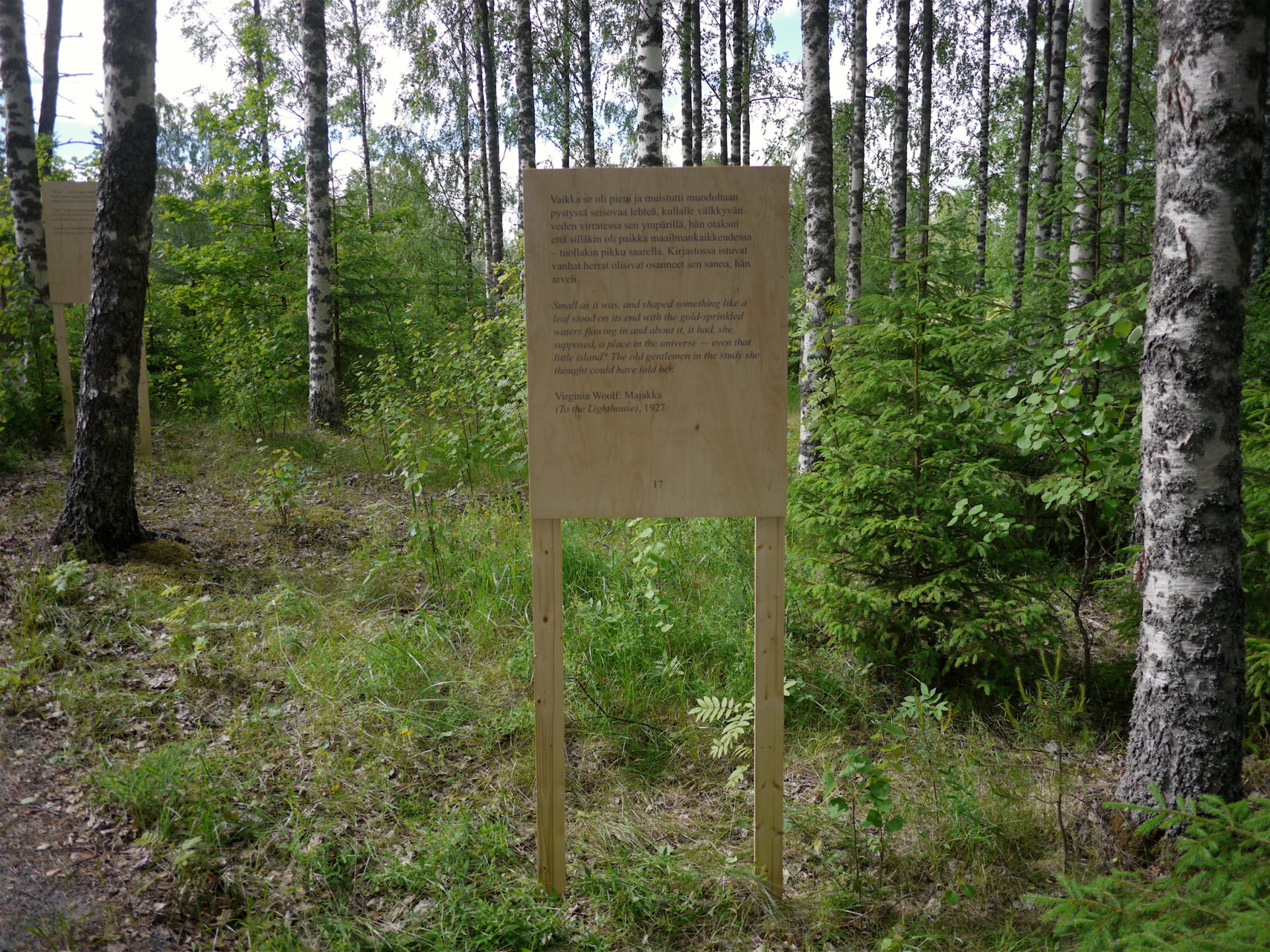 "Small as it was, and shaped something like a leaf stood on its end with the gold- sprinkled waters flowing in and about it, it had, she supposed, a place in the universe—even that little island? The old gentlemen in the study she thought could have told her." (Virginia Woolf: To the Lighthouse, 1927)
"Small as it was, and shaped something like a leaf stood on its end with the gold- sprinkled waters flowing in and about it, it had, she supposed, a place in the universe—even that little island? The old gentlemen in the study she thought could have told her." (Virginia Woolf: To the Lighthouse, 1927) 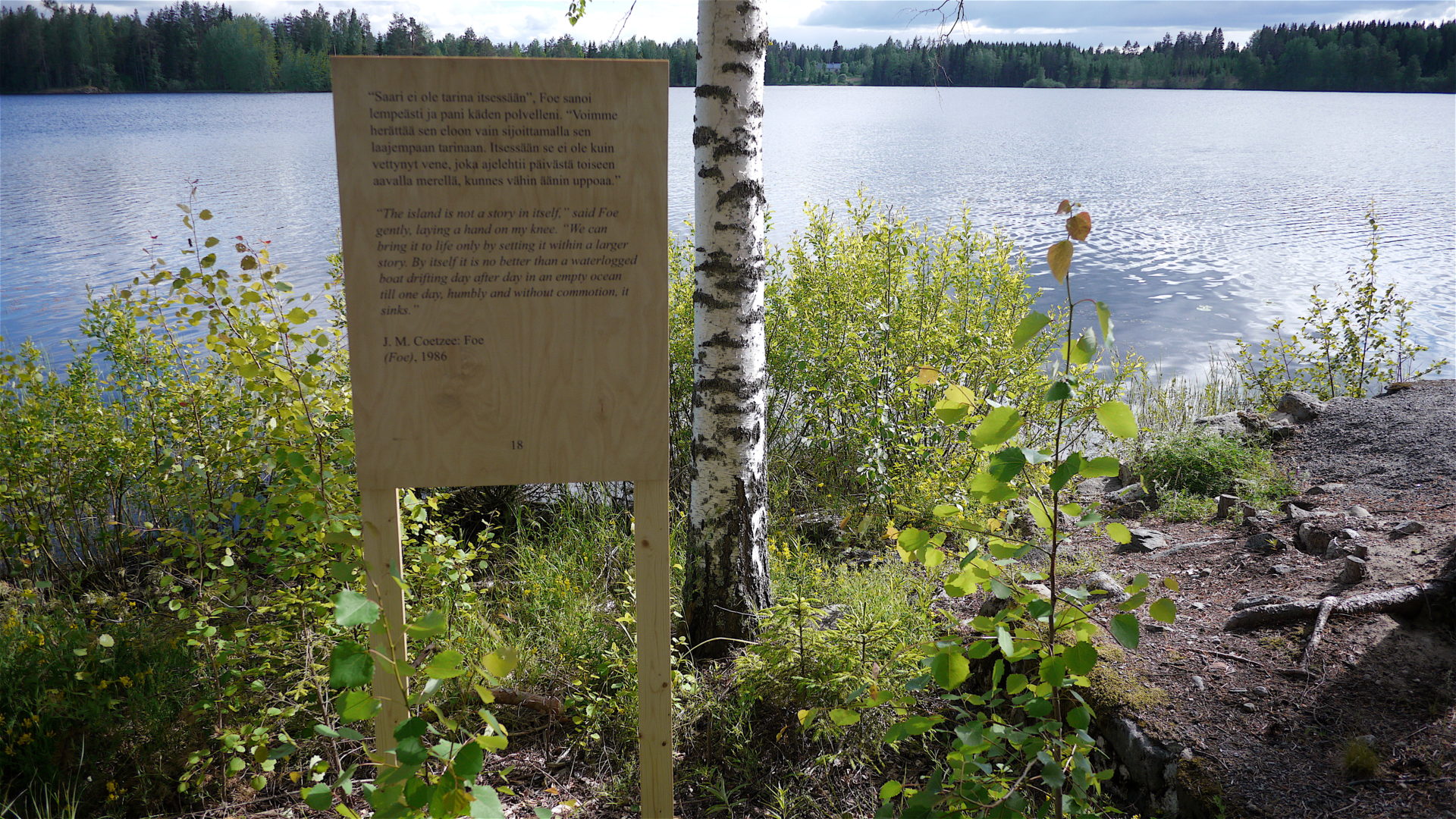 "The island is not a story in itself," said Foe gently, laying a hand on my knee. "We can bring it to life only by setting it within a larger story. By itself it is no better than a waterlogged boat drifting day after day in an empty ocean till one day, humbly and without commotion, it sinks." (J.M. Coetzee: Foe, 1986)
"The island is not a story in itself," said Foe gently, laying a hand on my knee. "We can bring it to life only by setting it within a larger story. By itself it is no better than a waterlogged boat drifting day after day in an empty ocean till one day, humbly and without commotion, it sinks." (J.M. Coetzee: Foe, 1986) 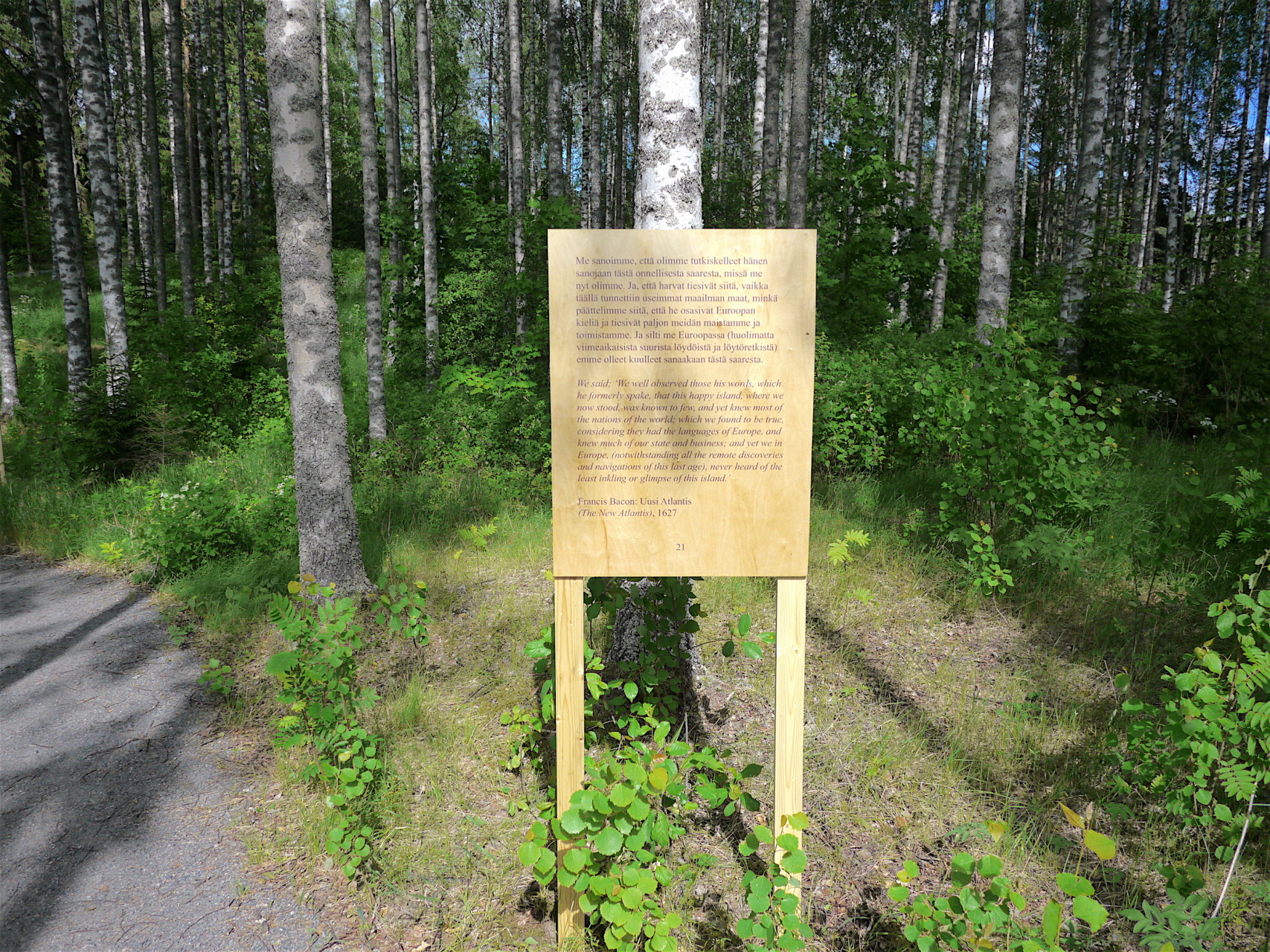 We said; ‘We well observed those his words, which he formerly spake, that this happy island, where we now stood, was known to few, and yet knew most of the nations of the world; which we found to be true, considering they had the languages of Europe, and knew much of our state and business; and yet we in Europe, (notwithstanding all the remote discoveries and navigations of this last age), never heard of the least inkling or glimpse of this island.’ (Francis Bacon: The New Atlantis , 1627)
We said; ‘We well observed those his words, which he formerly spake, that this happy island, where we now stood, was known to few, and yet knew most of the nations of the world; which we found to be true, considering they had the languages of Europe, and knew much of our state and business; and yet we in Europe, (notwithstanding all the remote discoveries and navigations of this last age), never heard of the least inkling or glimpse of this island.’ (Francis Bacon: The New Atlantis , 1627) 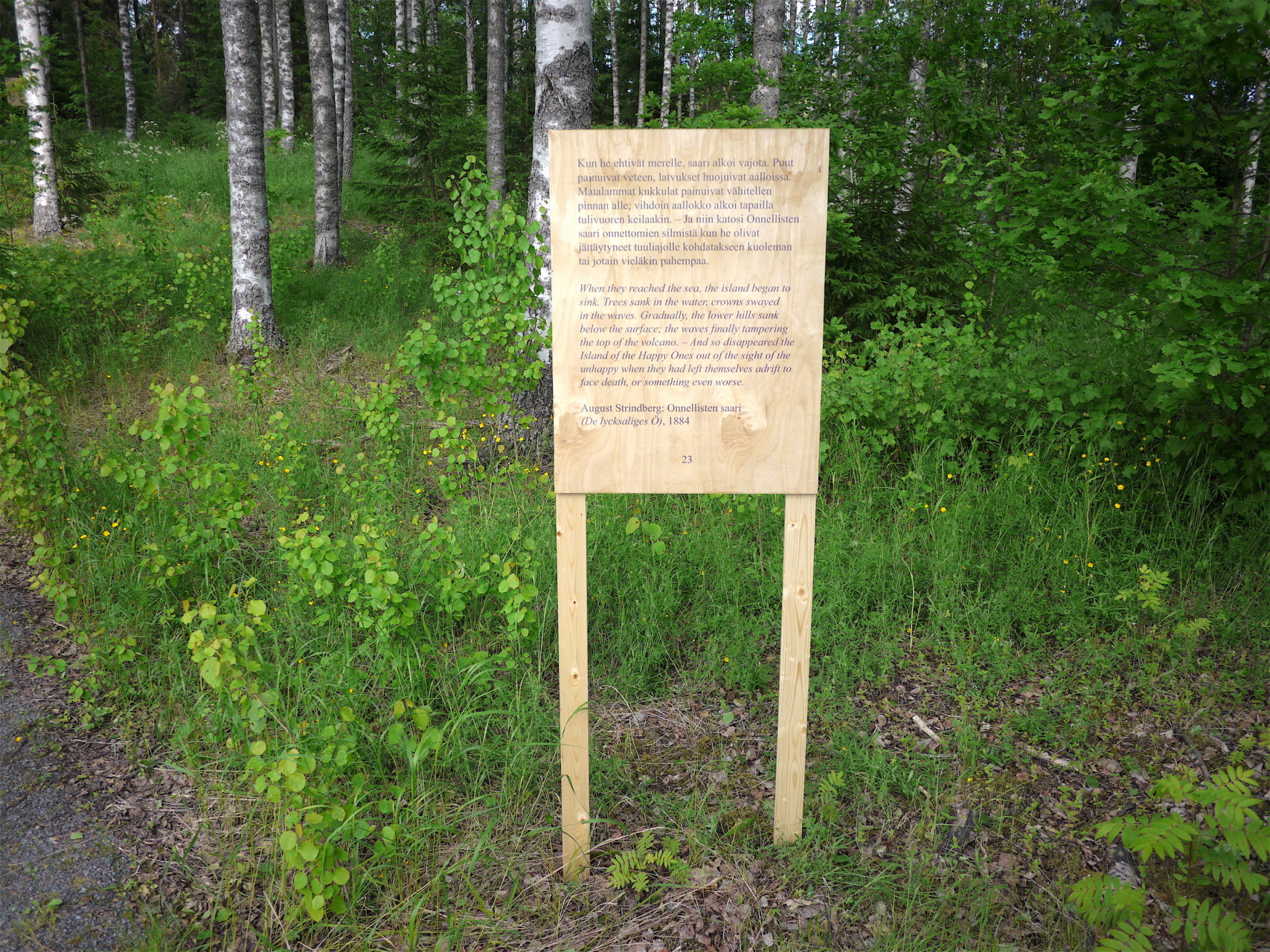 When they reached the sea, the island began to sink. Trees sank in the water, crowns swayed in the waves. Gradually, the lower hills sank below the surface; the waves finally tampering the top of the volcano. – And so disappeared the island of the happy ones out of the sight of the unhappy when they had left themselves adrift to face death, or something even worse. (August Strindberg: De lycksaliges Ö , 1884)
When they reached the sea, the island began to sink. Trees sank in the water, crowns swayed in the waves. Gradually, the lower hills sank below the surface; the waves finally tampering the top of the volcano. – And so disappeared the island of the happy ones out of the sight of the unhappy when they had left themselves adrift to face death, or something even worse. (August Strindberg: De lycksaliges Ö , 1884) 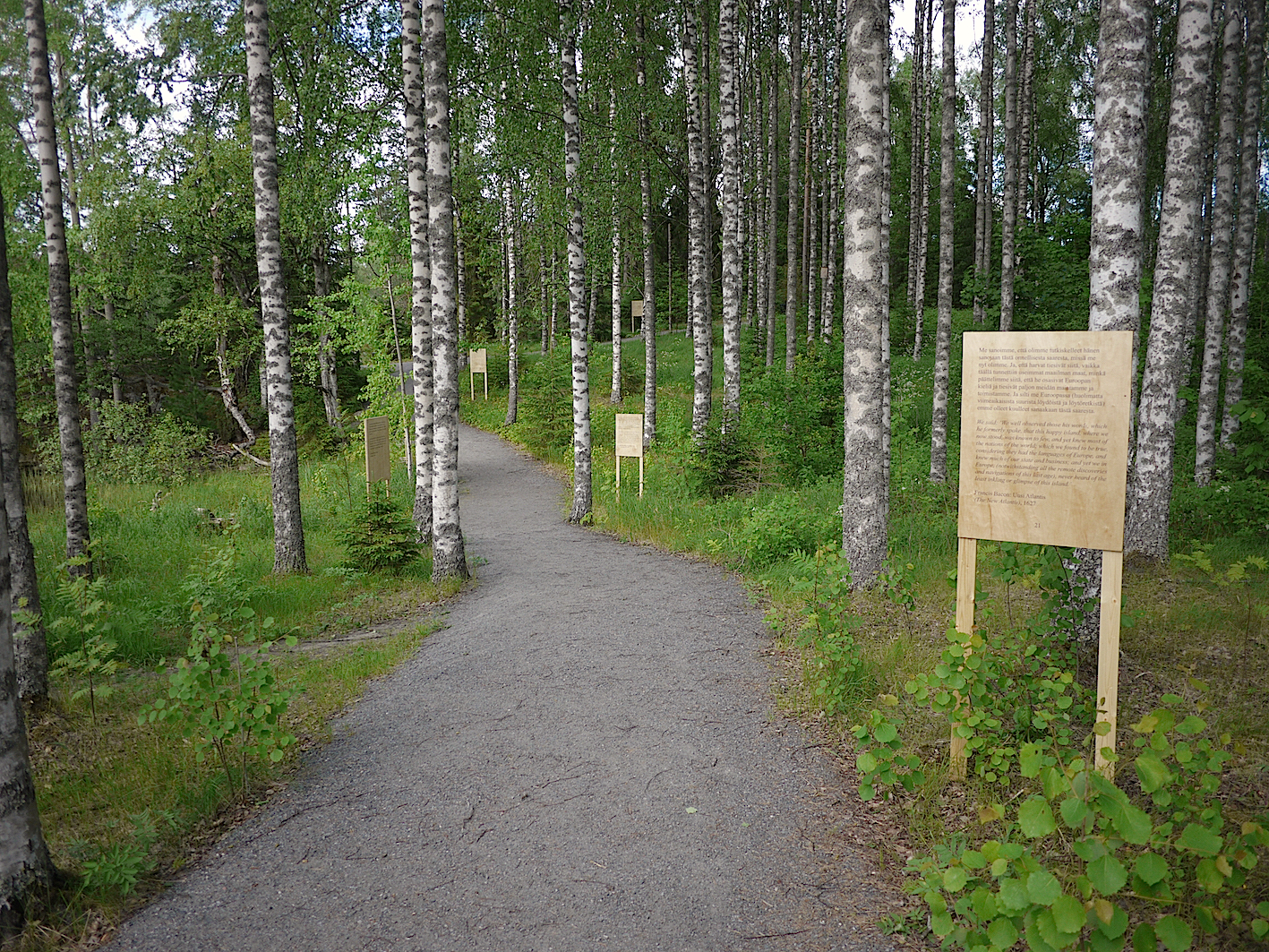 Installation view
Installation view